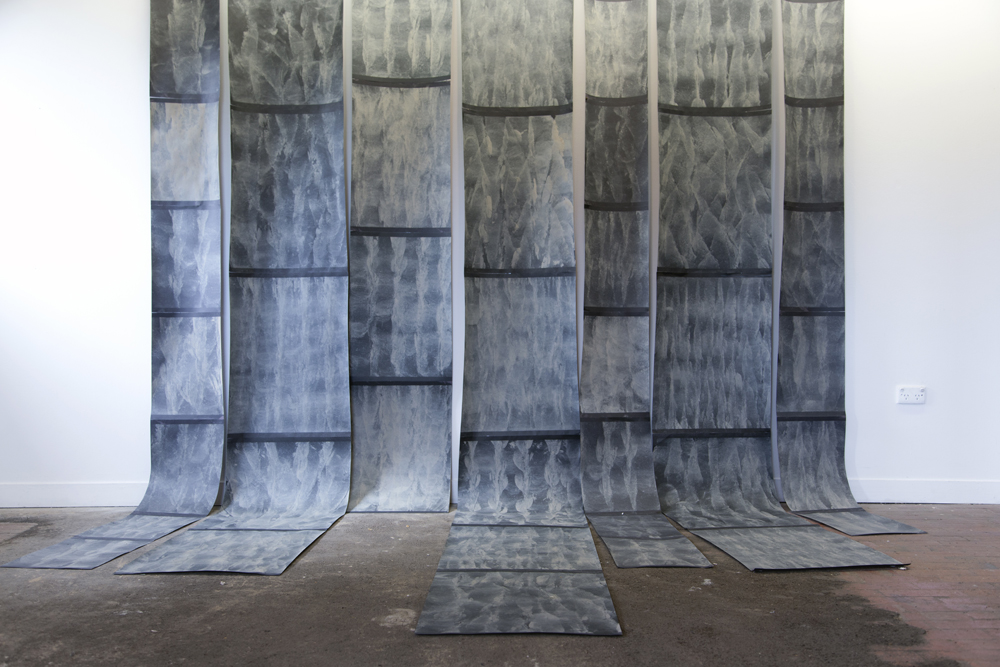The Function of Knowledge and Contingent Difficulty in the Poetry of John Forbes
Keywords:
John Forbes, poetry, difficulty, knowledge, George SteinerAbstract
The poet John Forbes (1950-1998) was famous for his erudition, but it is a feature of his work that has long been overlooked. Outlining how knowledge functions in Forbes’ poetics and compositional process, I argue for foregrounding this knowledge content in readings of his work, before modelling sustained readings of the erudition of two of Forbes’ best-known poems, ‘Stalin’s Holidays’ and ‘Ars Poetica’. These readings focus on the experience of contingent difficulty – that category of difficulty, according to George Steiner, that finds its source in a reader’s lack of knowledge – and the role that research, or ‘homework’ (26), plays in the reading process. While acknowledging that Steiner’s contingent difficulties are intertwined with – and sometimes created by – other categories of difficulty, this article argues for the productiveness of such ‘homework’ early in the interpretative process. Steiner likens contingent difficulties to ‘burrs on the fabric of the text’ (27). I extend this metaphor to propose that contingent difficulties, in their tactile, grip-like quality, enable a reader to engage with a difficult poem, and to proceed with exegesis, when the difficulties the poem otherwise presents seem insurmountable.
References
Bach, Greg. ‘Ars Poetica.’ The Manifesto in Literature (Vol. 1: Origins of the Form: Pre-1900). Ed. Thomas Riggs. Farmington Hills: Gale, 2013: 6-9.
Boech, Brian J. Stalin’s Scribe – Literature, Ambition, and survival: The life of Mikhail Sholokhov. New York: Pegasus Books, 2019.
Brown, Edward J. Mayakovsky: a Poet in the Revolution. New Jersey: Princeton University Press, 1973.
Calvert, Peter and Susan Calvert. Latin America in the Twentieth Century. New York: Palgrave Macmillian, 1990.
Clark, Andrew. ‘Chinese Whispers’. The Australian Financial Review. 29 Dec. 2015: 34.
Craven, Peter. ‘Luminous Poet Blessed with the Touch of Humour.’ The Australian 28 January 1998: 41.
Davis, Margaret Leslie. Mona Lisa in Camelot: How Jacqueline Kennedy and Da Vinci's Masterpiece Charmed and Captivated a Nation. New York: Da Capo Press, 2008.
Dizard, Wilson, P. Digital Diplomacy: US Foreign Policy in the Information Age. Westport: Greenwood, 2001.
Dunmore, Tom and Scott Murray. Soccer for Dummies. 2nd Ed. Hoboken: Wiley-Blackwell, 2013.
Duwell, Martin. ‘“The Truth That Doesn't Set Us Free”: Reading John Forbes.’ Overland 154, (1999): 55-58.
Eco, Umberto. The Open Work. Cambridge: Harvard UP, 1989.
Forbes, John. ‘Breakfast.’ Southerly 36.3, (1976): 296.
---. Collected Poems, 1969-1999. Rose Bay: Brandl & Schlesinger, 2010.
---. ‘Interview’. Interview by John Jenkins. Helix 5 & 6 (1980): 96-104.
---. ‘Interview with John Forbes’. Interviewers and program title unknown, NSWIT 2ser Radio. c1980.
---. New and Selected Poems. Pymble: Angus & Robertson, 1992.
---. ‘Stalin’s Holidays’ (drafts). Box 1A. UQFL148/A/S/12. nd. TS. The John Forbes Collection, Fryer Library, University of Queensland, St Lucia.
Greenham, David. Close Reading: the Basics, Routledge, 2018. ProQuest Ebook Central. 16 Jan. 2020 <https://ebookcentral.proquest.com/lib/adelaide/detail.action?docID=5481407>.
Harrison-Ford, Carl. ‘Speech to launch Damaged Glamour.’ Homage to John Forbes. Ed. Ken Bolton. Rose Bay: Brandl & Schlesinger, 1998: 13-19.
Hart, Kevin. ‘Open, Mixed, and Moving: Recent Australian Poetry’. World Literature Today 67.3, (1993): 482.
Hose, Duncan. Hose D. ‘Instruction for an Ideal Australian: John Forbes’ Poetry of Metaphysical Etiquette.’ Journal of the Association for the Study of Australian Literature [Supplement] (2010). 12 Jan. 2020 <https://openjournals.library.sydney.edu.au/index.php/JASAL/article/view/9617>.
MacLeish, Archibald. ‘Ars Poetica’. Collected Poems 1917-1982. Ed. Richard B. McAdoo. Boston: Houghton Mifflin Company, 1985. 106.
Offord, D. (2014) ‘Francophonie in Imperial Russia.’ European Francophonie: The Social, Political and Cultural History of an International Prestige Language. Eds. Vladislav Rjéoutski, Gesine Argent and Derek Offord. Bern: Peter Lang, 2014: 371-404. 23 Jan 2020 <https://doi.org/10.3726/978-3-0353-0630-9/8>.
Picasso, Pablo. ‘Statement to Marius De Zayas.’ Picasso: fifty years of his art. Ed. Alfred H. Barr. New York: Museum of Modern Art / Arno, 1966.
Porter, Peter. ‘John Forbes in Europe.’ Homage to John Forbes. Ed. Ken Bolton. Rose Bay: Brandl & Schlesinger, 1998: 21-34.
Redford, Jennifer. ‘The Poet As His Own Worst Enemy.’ The Sydney Morning Herald 25 Mar. (1989): 40.
Ryan, Gig. ‘more successful than America.’ Homage to John Forbes. Ed. Ken Bolton. Rose Bay: Brandl & Schlesinger, 1998. 13-19.
Solzhenitsyn, Alexander. ‘Sholokhov and the riddle of “The Quiet Don”.’ The Times Literary Supplement 4 Oct. 1974: 1056. 18 Jan. 2020 <https://www.the-tls.co.uk/articles/sholokhov-and-the-riddle-of-the-quiet-don/>.
Steiner, George. ‘On Difficulty.’ On Difficulty: And Other Essays. New York: Oxford UP, 1978: 18-47.
Stevens, Wallace. ‘Man Carrying Thing’. The Collected Poems of Wallace Stevens, Knopff: New York, 1954. 350.
Turner, Steve. A Hard Day’s Write: The Stories Behind Every Beatles Song. Dubai: Carlton Books, 2010.
Vonnard, Philippe. ‘A Competition that Shook European Football: The Origins of the European Champion Clubs Cup, 1954–1955.’ Sport in History 34.4 (2014): 595-619.
Wearne, Alan. ‘Spirit and Action.’ Homage to John Forbes. Ed. Ken Bolton. Rose Bay: Brandl & Schlesinger, 1998. 141-153.
Williams, Sean. ‘The Downfall of Russian Soccer Team.’ The New Yorker 11 Feb. 2016 <https://www.newyorker.com/sports/sporting-scene/the-downfall-of-a-russian-soccer-team>.
Wittgenstein, Ludwig. Tractatus Logico-Philosophicus. Ed. Bertrand Russell. London: Kegan Paul, Trench, Trubner & Co., 1922.
Downloads
Published
Issue
Section
License
The copyright for articles in this journal is retained by the author(s), with first publication rights granted to the journal. By virtue of their appearance in this open access journal, articles are free to use with proper attribution in educational and other non-commercial sectors.Attribution-NonCommercial-ShareAlike 2.1 Australia
This work is licensed under the Creative Commons Attribution-NonCommercial-ShareAlike 2.1 Australia License. To view a copy of this license, visit http://creativecommons.org/licenses/by-nc-sa/2.1/au/ or send a letter to Creative Commons, 543 Howard Street, 5th Floor, San Francisco, California, 94105, USA.

